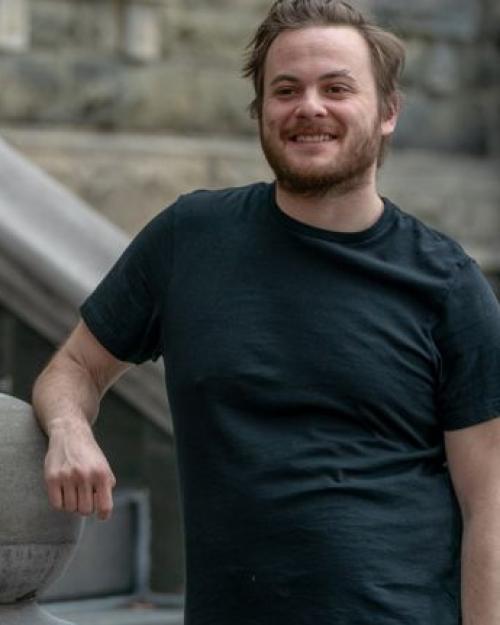Vincent Mauro’s 2021–22 Amit Bhatia ’01 Global PhD Research Award from the Einaudi Center took him to archival collections in Brazil and Colombia to study how Latin American party systems shape social reform and economic inequality. He was new to archival research when he started his fieldwork.
Mauro’s research aligns with Einaudi’s work on Democratic Threats and Resilience. Read about his research experiences in Latin America.
Mauro shares what he learned when the pandemic forced him to shift from primarily in-person interviews to archival data.
Briefly set the stage for us: What question is at the center of your dissertation?
At its core, my research seeks to understand why certain democracies are able to redistribute income and ameliorate inequality more effectively than others.
Party systems are present in virtually every democracy and are the key set of organizations that link society to formal political systems. The project draws on an eclectic array of cross-national data and two longitudinal case studies—Brazil and Colombia—to test how dynamics within party systems affect the advance of social reforms, income redistribution, and levels of inequality.
What did you find in the archives you explored?
I was able to find extremely rich collections of primary sources that provide significant access to the inner world of political parties, allowing me to trace how dynamics such as elite capture, intraparty factionalism, and party organization contributed to the advance or inhibition of redistributive social reforms.
I primarily analyzed private correspondence among political elites and party members from the major parties in Brazil and Colombia’s traditional party systems (1946–64 and 1930–2002, respectively).
What would you tell a graduate student planning a similar field experience?
I had no formal training or experience in archival methods, so I didn’t have clear expectations going into the field—and I underestimated how much time the analysis of archival materials would take. To make the most of limited time and resources, I have four major pieces of advice to share.
Stay Nearby
It’s best to find accommodation as close to the archives as possible. Some archives are essentially first come, first served, and there may be fewer spots than people who want to use them. Staying nearby makes it easier to arrive early. More importantly, spending hours in the archives each day is incredibly draining. Adding on a commute wastes unnecessary energy.
Get Acquainted in Advance
Try to get a strong grasp of the contents of the archives before you arrive. This is not always possible, but depending on the archive, there may be guidebooks that give you some details. Portions of the archive may also be online. Spending a couple of weeks going through these before you arrive is extremely helpful for getting a feel for other parts of the collection. Lastly, consider contacting the head archivist or librarian to inquire about individual collections.
Develop Filters for Speed
Archives always contain a large amount of material that is wholly irrelevant to your project. You need a set of heuristics or “filters” that help you zero in on pertinent materials. As you cull through materials, try to limit how much you allow yourself to thoroughly analyze, since this level of attention is the most time-consuming. You may need multiple rounds of applying different sets of filters to reach a manageable set of highly relevant materials to analyze closely. For example, I found that telegrams rarely, if ever, contained enough substantive information to make it worth the time it took to read or analyze them—which meant I saved a substantial amount of time simply skipping stacks of telegrams and moving on to other documents in the box. Another filter I used was to have a set of keywords in my head—for instance, “parties,” “divisions,” and “factions”—that I would scan for when quickly going through documents.
Balance Collection and Analysis
Understand that collecting materials is infinitely faster than analyzing them. If you spend too much—or all—of your time each day simply collecting, you will quickly overburden yourself with material that needs to be analyzed.
Make the conscious decision to split your time into separate collection and analysis blocks. There are different ways to do this—blocks of time each day, alternating weeks, or other approaches. Staying on top of analysis as you go along also helps you refine your filters for more efficiency.
Read the story on einaudi.cornell.edu.




